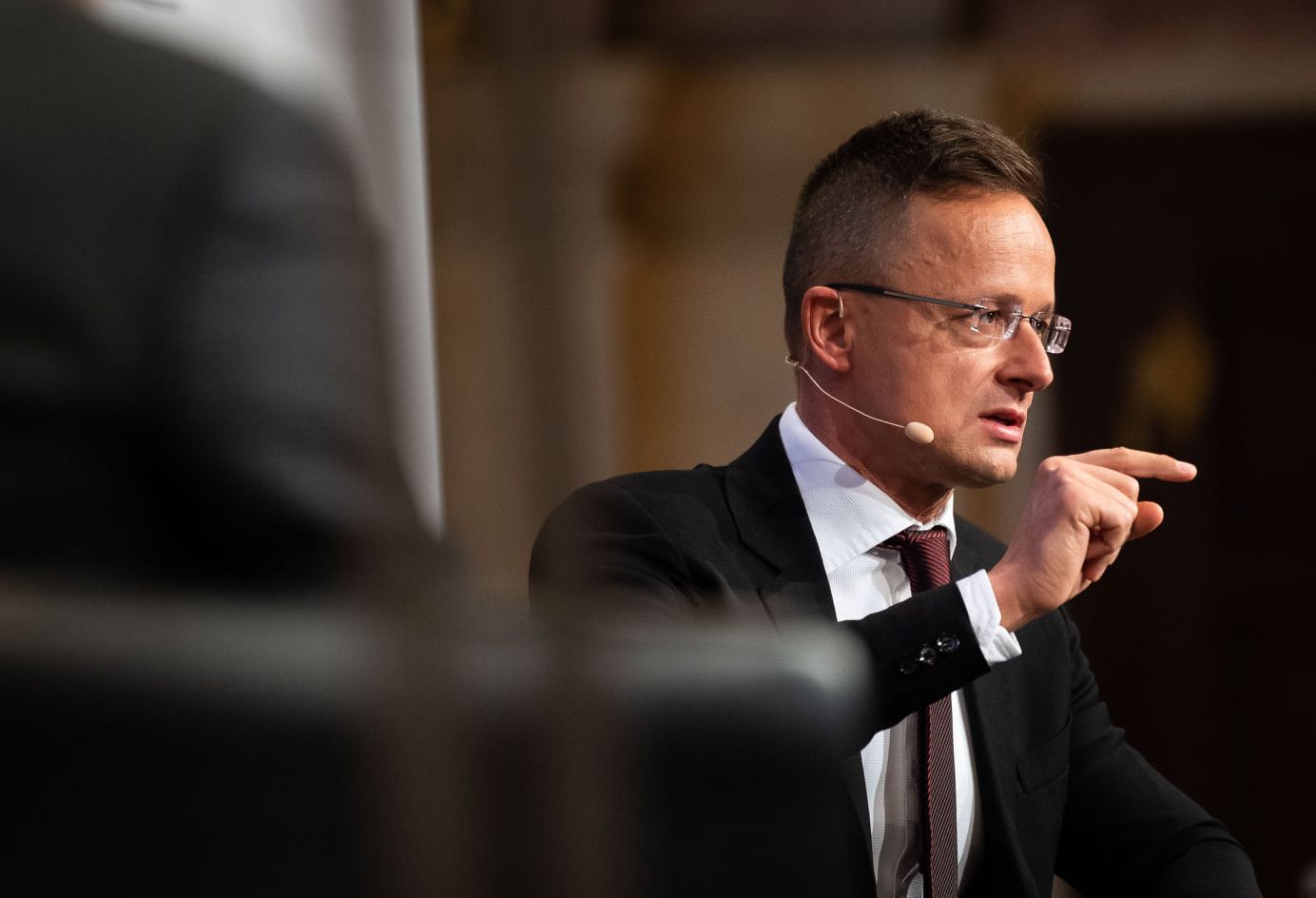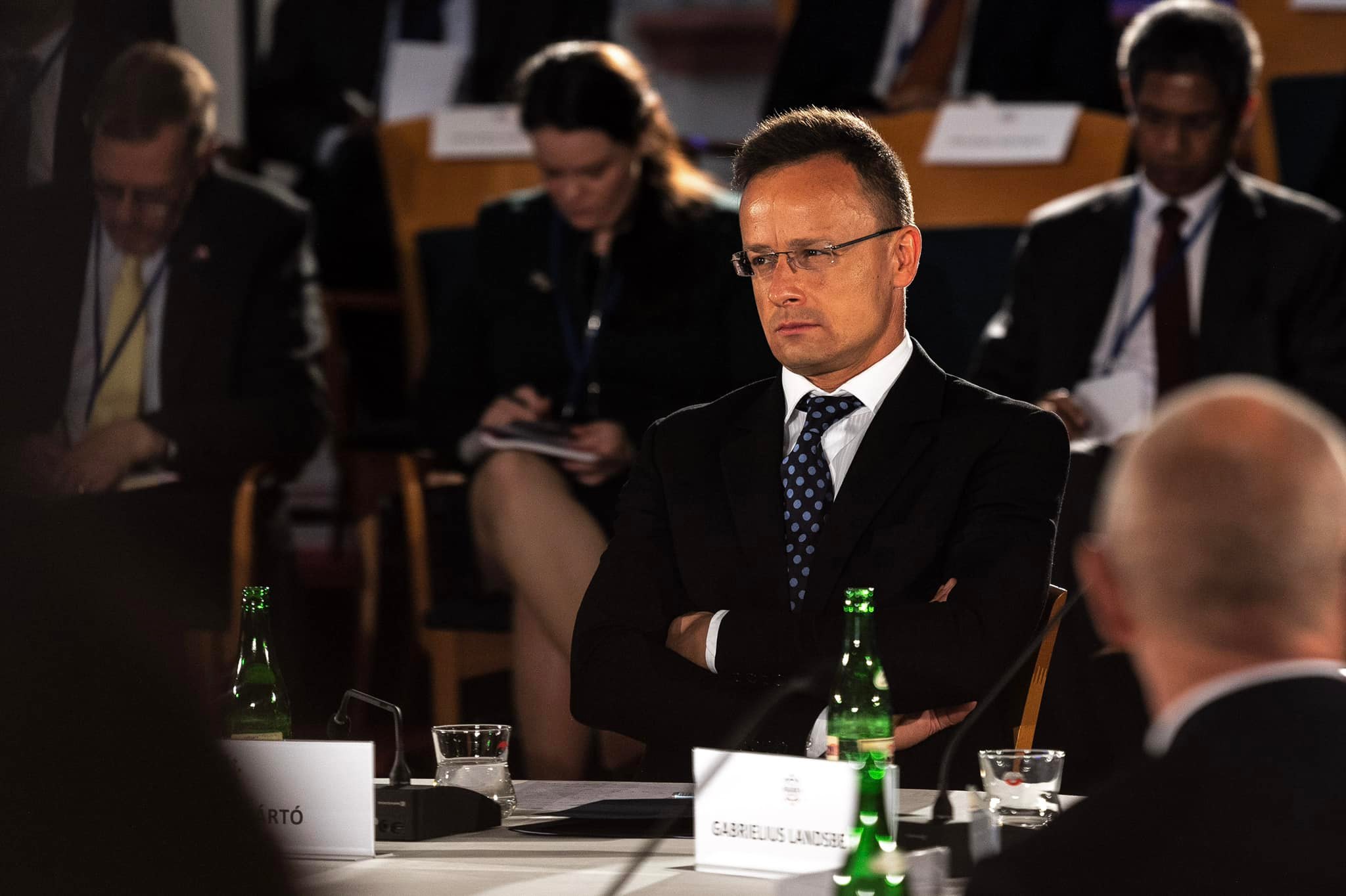
"We reject any form of tax changes that would put extra burdens on people," the Foreign Minister said.Continue reading

The Ukrainian war had dashed hopes for an East-West cooperation within Europe, at least for the foreseeable future, but the importance of such a dialogue will increase globally, Minister of Foreign Affairs and Trade Péter Szijjártó said in Prague on Monday.
Speaking at the Indo-Pacific Forum in Prague, the minister stressed that an important consequence of the armed conflict is the need to reshape supply chains between East and West, as their maintenance is vital for the European economy.
He underlined that failure to improve economic cooperation between Europe and the Indo-Pacific region would deprive both sides of significant growth potential and that governments and the Brussels institutions, therefore, have a responsibility to strengthen pragmatic, mutually beneficial, and active relations.
Szijjártó recalled that Hungary is the tenth most open economy in the world, where foreign working capital plays a very important role and exports account for more than 85 percent of gross domestic product (GDP). He pointed out that last year alone, the country’s exports grew by 25 percent, and at the same time the record for trade with the Southeast Asian region was broken, with trade exceeding USD 13.5 billion.
Hungary is doing well in its cooperation with the South East Asian region, as for three years now the largest investments have been coming from here,”
he said. “Therefore, I think it is no surprise that Hungary is calling for pragmatic cooperation between Southeast Asia and Europe along the lines of mutual benefits,” he said.
The Minister said that external relations strengthen the European Union, thus it is necessary to speed up negotiations on partnership and cooperation agreements with countries in the region, and and states that the conclusion of free trade agreements with Indonesia, New Zealand, and Australia is important.
We, in Hungary, have done a lot to make the Hungarian economy competitive, so now it is up to the European Union, to Brussels, to the European Commission, to remove the trade barriers that still hamper Europe’s trade with some of the world’s fast-developing regions,”
he said.
He also referred to the cooperation with China, saying that “regardless of political ideologies and the debates they create, we have to admit that the European economy cannot function properly without Chinese supplies, and we also have to admit that Chinese investments make a major contribution to the development and modernization of the European economy”.
The Minister, therefore, called for an early conclusion of the negotiations on the EU-China Investment Protection and Promotion Agreement.
He also said that several Western European companies present in Hungary have asked him to convince Chinese suppliers to set up factories in Hungary, which is clearly not in line with the political discourse.
In addition to the EU Member States, Australia, Bangladesh, Canada, Cambodia, Bangladesh, Cambodia, India, Indonesia, Japan, Malaysia, Mongolia, Nepal, New Zealand, Myanmar, South Korea, Thailand, East Timor, Vietnam, the Philippines, Switzerland, the United Kingdom, the United States, and the United States have been invited.
Source: MTI
Featured image: Foreign Minister Péter Szijjártó at the Indo-Pacific Forum in Prague. Photo via Péter Szijjártó’s Facebook page